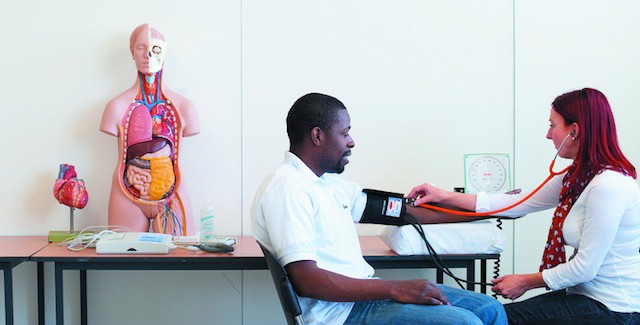World Health Day took place on 7th April and this year the theme for the event was high or raised blood pressure (also known as hypertension). This type of condition is completely preventable but plays a central role in some serious health conditions, such as kidney failure, heart attacks and strokes. The World Health Day event this year was aiming to raise awareness of high blood pressure, and its consequences, to inspire people change the behaviours that can lead to it, and to persuade people to have regular blood pressure checks.
This kind of condition is diagnosed in a patient who has consistent blood pressure readings of 140/90 mmHg or above. It contributes to numerous diseases, many of which are fatal. As well as heart conditions, such as heart attacks, strokes and kidney failure, high blood pressure that is not controlled can also lead to heart failure and even blindness. The ideal level for adults is 120/80 but most UK adults have readings of between 120 over 80 (120/80) to 140 over 90. The further upwards from 120/80 your reading is, the more important it is to take steps to bring it down.
Although high blood pressure is quite easy to prevent, one in three adults has it. Simple steps such as cutting down on salt in your diet, exercising regularly, avoiding mis-using alcohol, steering clear of tobacco and maintaining a healthy weight and a balanced diet with lots of fruit and vegetables all contribute towards lowering blood pressure away from dangerous levels. An unhealthy lifestyle is at the heart of high blood pressure – for most people eating unhealthily, not exercising, smoking and drinking will almost certainly contribute to serious health problems such as this later in life.
If you think you might have high blood pressure, or your readings are higher than normal, then speak to your GP for some advice on how to treat it and live better.







